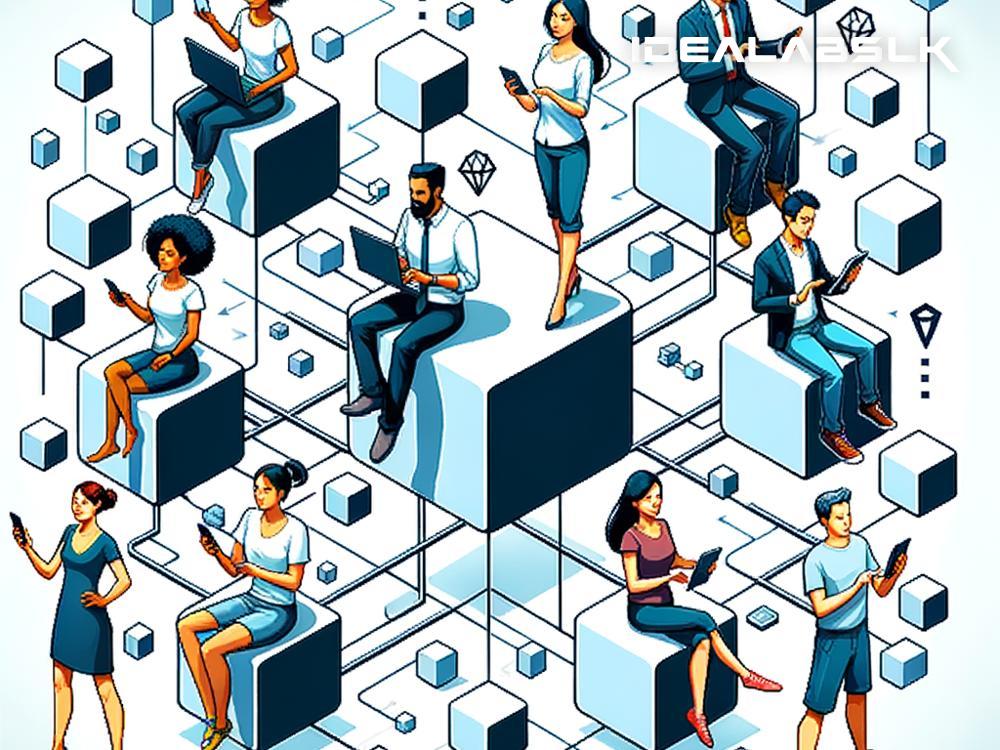How Blockchain Powers Crowdsourcing: A Beginner's Guide
In recent years, blockchain technology has transcended its initial cryptocurrency roots, finding applications in various industries, from finance to healthcare. One intriguing use case of blockchain that's gaining momentum is in crowdsourced applications. But how exactly does blockchain work in these contexts, and why is it considered a game-changer? Let's break it down into simpler terms.
Understanding Blockchain
Imagine a ledger or a diary, which instead of being held by one person, is duplicated thousands of times across a network of computers. This network is designed to regularly update this ledger, ensuring all copies are synchronized. That, at its core, is blockchain.
What makes it revolutionary is its ability to distribute information without it being copied or tampered with, thanks to cryptography. This means any piece of data, once entered into the blockchain, becomes part of a long chain of information that's both transparent and immutable.
The Crowdsource Connection
Crowdsourcing, the practice of engaging a 'crowd' or group for a common goal—often innovation, problem-solving, or efficiency enhancement—thrives on transparency, security, and trust. Here's where blockchain steps in as a natural ally.
Imagine you're participating in a crowdsourced project, perhaps contributing ideas for a new community park. In a blockchain-powered system, your suggestions, once submitted, are timestamped and added to a block along with others' proposals. This block is then 'chained' to the previous entries in an open, distributed ledger, ensuring no submission is altered or unfairly prioritized over others.
Key Features of Blockchain in Crowdsourcing
-
Trust and Transparency: Because all transactions (or, in our case, contributions) are recorded on a blockchain, there is an inherent level of trust in the system. Participants don't need to rely on a central authority; the blockchain acts as a neutral, transparent ground.
-
Security: The decentralized nature of blockchain, along with its complex encryption methods, makes it incredibly secure. This is crucial in crowdsourced applications where intellectual property or sensitive ideas are shared.
-
Incentivization: Blockchain networks, especially those utilizing cryptocurrencies or tokens, can easily incentivize participation. Contributors might receive digital tokens as a reward for their submissions, promoting a more lively and engaged community.
-
Efficiency and Speed: Without the need for middlemen or central authorities, blockchain can make crowdsourcing efforts significantly more efficient. Processes that used to take days can be completed in minutes.
Real-World Applications
To illustrate, let's look at a couple of examples where blockchain and crowdsourcing intersect beautifully:
-
Crowdfunded Ventures: Platforms that facilitate crowdfunding can employ blockchain to ensure that all monetary contributions are tracked transparently, providing backers with clear insights into where their money is going and how it's being used.
-
Decentralized Innovation Contests: Imagine a global innovation challenge where participants submit their ideas on a blockchain platform. The transparent nature of blockchain ensures that all ideas are treated equally, and smart contracts can automatically reward winners based on pre-established criteria.
Overcoming Challenges
While the potential is immense, there are hurdles to overcome, such as scalability issues—blockchain networks can become sluggish as they grow—and the need for a more user-friendly interface to encourage widespread adoption among non-tech-savvy participants.
Moreover, there's the question of regulation. As a relatively new space, the regulatory framework around blockchain and crowdsourced applications is still in its infancy. Balancing innovation with consumer protection and privacy will be key to its long-term success.
The Future is Collaborative
The fusion of blockchain with crowdsourced applications opens up a plethora of possibilities for collective problem-solving and innovation. It's a testament to the power of technology in democratizing processes and making systems more equitable and transparent.
As we move forward, the synergy between blockchain and crowdsourcing is likely to spur new business models, empower individuals, and redefine how we think about collaboration. While challenges remain, the potential benefits make this a development worth watching—and participating in.
In the end, blockchain in crowdsourced applications isn't just about technology; it's about harnessing the collective power of communities across the globe. It's about trust, security, and collaboration. And most importantly, it's about paving the way for a more inclusive, efficient, and transparent future.

